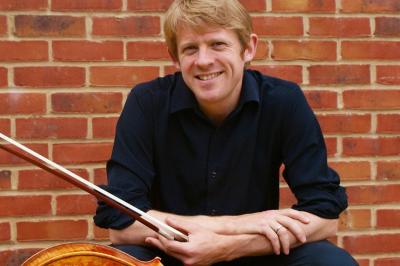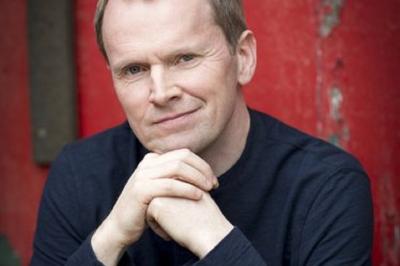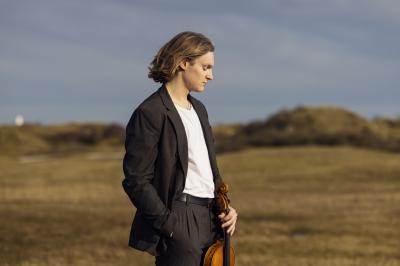Philip Higham and Alasdair Beatson
Cellist Philip Higham and pianist Alasdair Beatson have delighted Music Nairn audiences in the past, and their recent concert attracted a large and enthusiastic audience. Both at the apex of international careers, they offered a programme which was virtuosic, thoughtful and intelligently musical. They opened with one of the Bach Sonatas for viola da gamba and harpsichord BWV 1027. The gamba, more closely related to the guitar than the cello, has a character all of its own, as of course does the harpsichord, but it is a mark of the genius of Bach that his rich chamber music sounds just as effective on their more modern equivalents. Beatson's stunningly diffident keyboard technique and Higham's deep understanding of this repertoire ensured an engrossing performance.
From Bach to Beethoven and the first of the young composer's opus 5 Sonatas, composed when he was trying to establish himself as a virtuoso pianist and composer in the cultural maelstrom of 1790s Vienna. It is easy to picture the ambitious young Beethoven shining in the sparkling keyboard part he had written for himself, but to me what is most remarkable about these early chamber works is the sheer wealth of musical ideas. This particular Sonata is a bit of a structural oddity, with a slow introduction and then two Allegro movements, a mark of the composer's pioneering approach, prepared to depart from convention in the interest of musical effect. The duo found the perfect blend of technical bravado and emotional intensity to conjure up a memorable account of this remarkable music.
It would be so easy as busy professionals with portfolio careers to stick to the standard repertoire when planning programmes, but a second half of music by Nadia Boulanger and the rarely performed Poulenc Sonata promised a much more stimulating experience. Better known as a ubiquitous teacher of a whole generation of composers, Nadia Boulanger was like her sister Lili also a fine composer, and her Trois Pièces of 1911 proved both wonderfully atmospheric and beautifully crafted – you could enjoy the tranquil Pièce II entirely without noticing that it ran in strict canon throughout! The Boulanger proved the perfect appetiser for the Poulenc, a work whose fiendish difficulty sets it outside the repertoire of most players. Higham and Beatson's spirited account made light of the technical demands, while finding the work's characteristic blend of acerbic wit and Gallic melancholy. This was a tour de force performance, and enthusiastic applause drew an appropriately calming performance of the slow movement of Bach's third Gamba Sonata, music of almost transcendental beauty to send us all out into a mild September night.
Forthcoming Events






